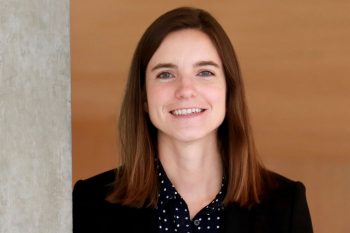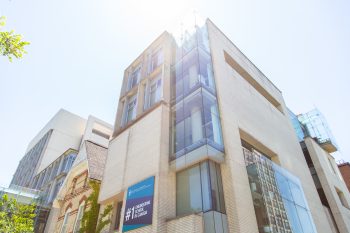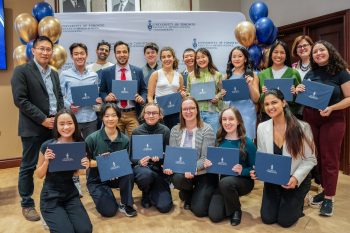An unassuming box sits on a table. One part is clear plastic, allowing you to see the empty chamber inside. You don’t think to look at it, but the empty chamber may one day hold a cell colony, or even tissue generated from a patient’s own body, to help diagnose or treat diseases such as cancer.
It’s just one of many cutting-edge devices on display at the IBBME Tomorrow’s Technology Showcase, which was part of IBBME’s 50th Anniversary celebrations from October 9-10.
The showcase highlighted an area of major growth for the healthcare industry in years to come: regenerative medicine. Regenerative medicine is a field of research to restore function in the body through the regeneration of cells, tissues and organs.
It’s also one of the hottest markets around.
One of the presenters at the showcase was the Centre for Commercialization of Regenerative Medicine (CCRM). According to CCRM, where Professor Peter Zandstra (IBBME) serves as Chief Scientific Officer, regenerative medicine is an emerging industry with a projected annual growth of 30 per cent.
And it’s not just a field for doctors.
“Regenerative medicine is a great example of the integration of engineering and medicine. IBBME’s technology showcase was a wonderful way to feature an industry that will continue to grow in importance as today’s discoveries become tomorrow’s cures,” said Stacey Johnson, Communications Manager with CCRM.
Regenerative medicine is also rapidly becoming known for tackling diseases related to aging – a central concern for the health industry as the population ages.
At IBBME’s 50th Anniversary Symposium, ‘Defining Tomorrow: Advancing the Integration of Engineering and Medicine,’ speakers discussed the many regenerative medicine strategies currently being researched by engineers and scientists – from spinal cord injuries, to Alzheimer’s disease, to stroke patients.
Professor Milos Popovic (IBBME), a Toronto Rehab Chair in Spinal Cord Injury Research at the Toronto Rehabilitation Institute, described the success of his Functional Electronic Stimulation, or FES, in the treatment of cervical spinal nerve injuries that severely limit a person’s ability to grasp, move and hold objects.
“Patients must imagine movement,” said Professor Popovic during his presentation on the rehabilitation process involving FES. “They must struggle a bit. And then we turn on FES.”
FES floods the nervous system with small, controlled bursts of electrical stimulation which has been shown to help regenerate key tissues in the nervous system. The FES treatments also shows evidence that it delays the progression of injuries to the ‘white matter,’ a trauma that further complicates rehabilitation.
To date, the treatment has been used as an additional aid to traditional physiotherapy – with exciting results. During clinical trials, when patients were administered 40 hours of FES treatment alongside a 40-hour schedule of physiotherapy, FES was seen to greatly improve or maintain function in patient groups across the board, even after six months.
On top of maximizing a patient’s ability to move, however, is the enormous potential for savings of both time and money. FES therapy could cut costs from $360,000 – the cost of yearly physiotherapy over the average life span of a spinal cord injury patient – to a mere $60,000.
Popovic is currently extending his FES research to the recovery of stroke patients.



